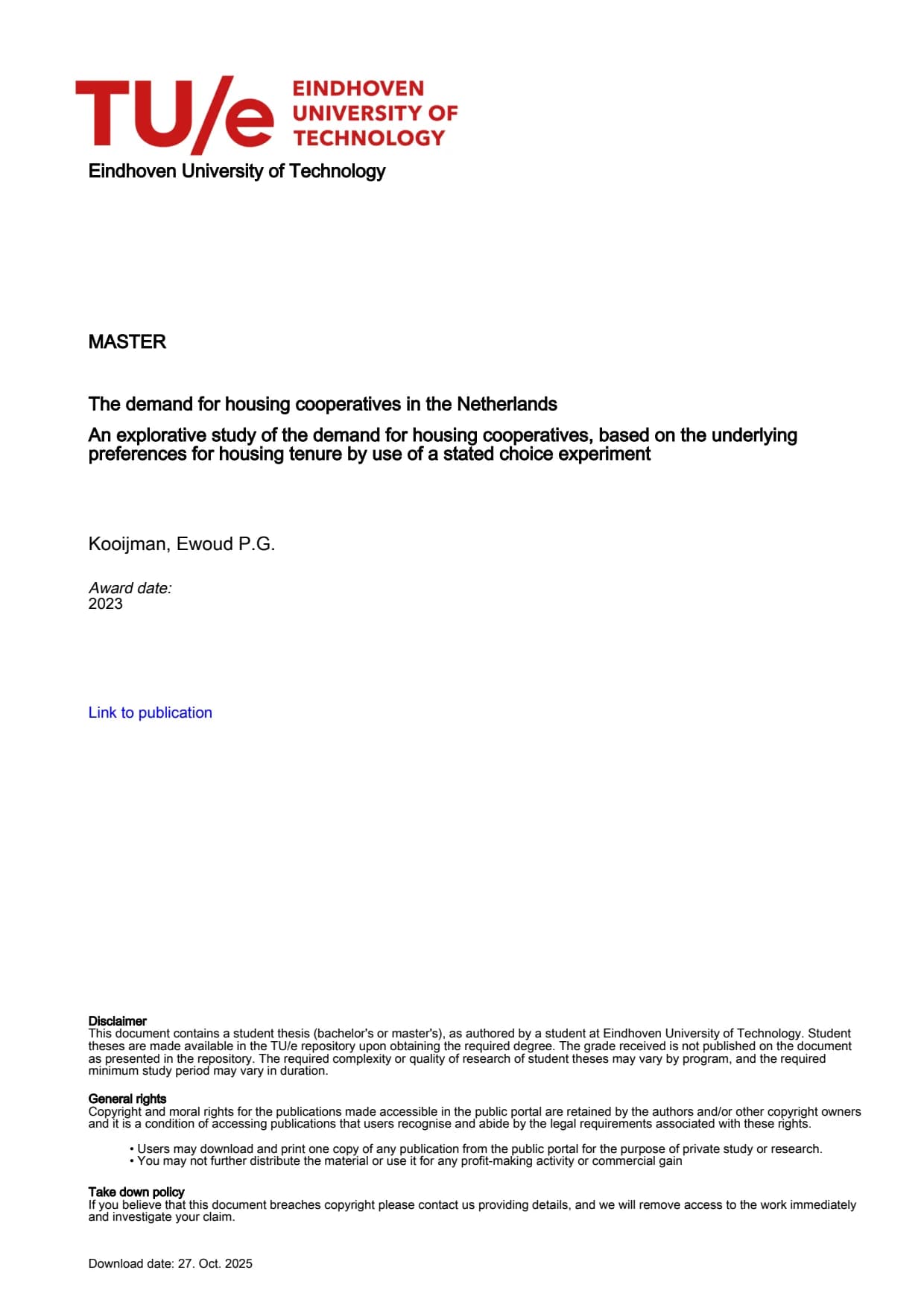AI-Generated Summary
Context and Overview
This study, conducted by Ewoud Kooijman at Eindhoven University of Technology, investigates the demand for housing cooperatives in the Netherlands. It focuses on the preferences for different forms of housing tenure, particularly in light of the urgent need for affordable housing solutions in the country. The research aims to fill a gap in empirical evidence concerning the market-driven demand for housing cooperatives, which are a prominent feature in other European countries like Germany, Denmark, and Sweden.
Housing Shortage in the Netherlands
The Dutch housing market faces a significant challenge, with an estimated 900,000 additional dwellings required by 2030, of which 300,000 must be affordable. The introduction of housing cooperatives could help address this issue by ensuring long-term affordability through non-profit models that exclude the possibility of selling properties. Despite growing interest in this form of housing tenure, a substantial breakthrough has yet to occur in the Netherlands.
Research Methodology
Kooijman employed a stated choice experiment involving 1,404 respondents to analyze preferences across four common forms of housing tenure: individual owner-occupied, apartment rights, social rent, and private rent. The research utilized a literature review and semi-structured interviews to identify key attributes affecting preferences, such as monthly costs, management responsibilities, adaptability control, and community presence.
Key Findings
The results indicate that the most influential factor for respondents is the monthly costs associated with housing. A clear preference emerged for housing cooperatives, particularly among younger individuals aged up to 35 years. This demographic predominantly consists of students or full-time employed individuals, most of whom expressed a strong concern for housing costs. About 48% of respondents indicated that they might prefer a housing cooperative as a viable option due to its potential for lower monthly costs and absence of annual cost increases.
Class Differences in Preferences
Analysis identified two distinct classes of respondents based on their preferences. Class one, comprising 52.3% of participants, showed a strong inclination towards owner-occupied dwellings, while class two, making up 47.7%, indicated a preference for housing cooperatives. Class two members valued attributes like affordability and community, while class one favored individual control and asset accumulation.
Policy Implications
The study underscores the need for policy reform to enhance the establishment of housing cooperatives in the Netherlands. Recommendations include creating standardization in policies, reserving land for cooperative projects, and encouraging banking institutions to offer favorable mortgage terms for cooperatives. Such measures could diversify the housing market and make it more inclusive, ultimately leading to a more sustainable housing landscape.
Conclusion
Kooijman's thesis contributes valuable insights into the preferences for housing cooperatives in the Netherlands, highlighting their potential as an alternative form of housing tenure in a landscape characterized by scarcity and high costs. By examining the underlying factors influencing preferences, the study aims to inform policies that foster a more equitable and sustainable housing market in the Netherlands.
